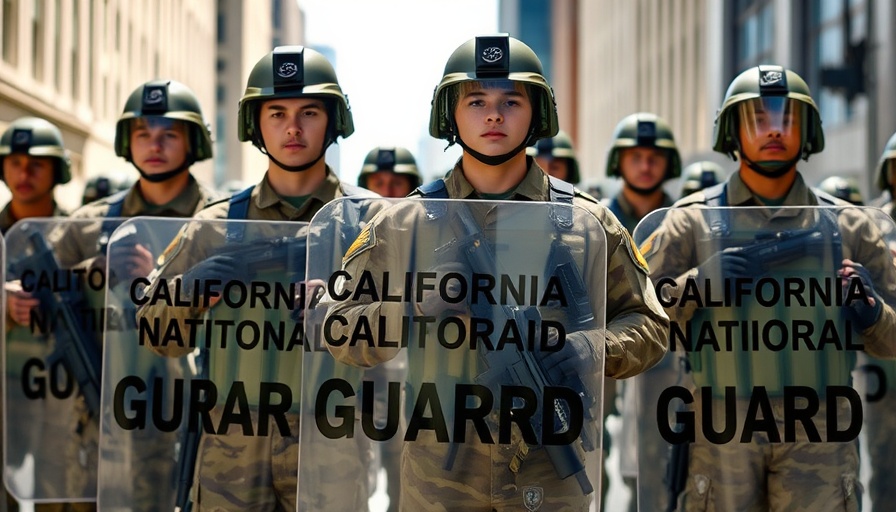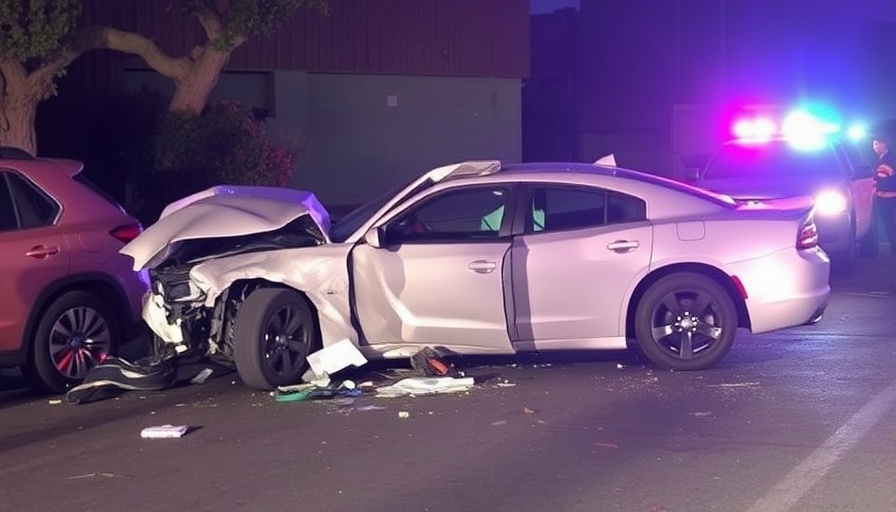
The Current Military Presence in Los Angeles: What You Need to Know
As recent events unfold in Los Angeles, the visibility of military presence has heightened. Currently, the total number of troops supporting federal missions in the area stands at 4,800, comprised of 4,100 Army National Guard soldiers and 700 Marines. This deployment has generated significant attention, particularly in light of ongoing immigration enforcement protests and concerns about civil liberties.
Understanding the Deployment: The Context of Title 10
Recently, confusion arose regarding the exact number of troops on the ground following an announcement from U.S. Northern Command detailing the activation of the 49th Military Police Brigade. While it was initially thought that additional troops were being dispatched, U.S. officials clarified that the current numbers had remained consistent for about a week. Title 10 of the U.S. Code outlines the roles and operations of military forces, providing the legal framework for this deployment. Under this title, the federalized National Guard reports to an active-duty command, further emphasizing the administration's control over the situation.
The Role of Federalized Troops: Purpose and Limitations
These troops are tasked primarily with protecting federal personnel and property, as well as assisting federal officials during law enforcement activities. However, there are restrictions on their direct involvement in policing duties. For instance, while they can temporarily detain individuals, the troops are not authorized to engage in law enforcement operations. This distinction is crucial as communities grapple with the implications of military presence in civilian contexts.
Response from the Community: Safety Concerns and Civil Rights
The deployment has provoked varied reactions from residents in the surrounding areas, including Bakersfield. Some community members feel a heightened sense of safety with an increased military presence, perceiving it as a determent to violence and unrest. Conversely, others express concerns over potential civil rights violations and the militarization of local law enforcement. Understanding the balance between safety and civil liberties remains a complex issue for residents.
The Bigger Picture: Military vs. Civilian Functions
As the troops continue their mission in Southern California, the question of their role compared to local law enforcement persists. Local police forces typically engage in day-to-day governance and community protection, while the military's involvement—though intended for supportive functions—has raised questions about jurisdiction and authority. It is vital for residents to remain aware of how these roles intersect and what that means for the overall safety and governance of their communities.
Future Predictions: Potential Trends and Considerations
As the legal contestation regarding the use of Title 10 proceeds in federal appeals court, the outcome may shape future deployments and the use of military forces in civilian situations. Observers predict heightened scrutiny and possibly new legal precedents that may redefine how federalized troops can interact within local communities. The implications of such outcomes warrant close attention from all stakeholders.
Community Engagement: The Importance of Staying Informed
For those living in and around Bakersfield, understanding the current military presence and its ramifications is essential. Community members are encouraged to engage in discussions about public safety and civil rights. Attending town hall meetings or participating in discussions with local leaders and law enforcement can serve as a platform for residents to voice concerns and seek clarity on the issues at hand.
Conclusion: What Lies Ahead for the L.A. Troop Deployment
As the troop levels in Los Angeles maintain their status quo and legal challenges unfold, the community's response will be pivotal. It is essential for residents to stay informed about these developments and advocate for transparency in military-civilian interactions.
 Add Row
Add Row  Add
Add 



Write A Comment